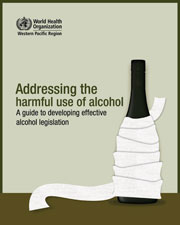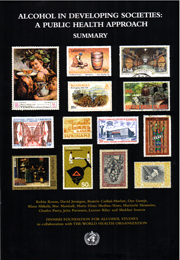
Advertising may lead to increased alcohol consumption
Alcohol marketing increases the likelihood that adolescents will start to use alcohol and increases the amount used by established drinkers. This is the conclusion of a European science group in a report presented to the EU.
The report on possible effects of alcohol advertising was commissioned by EU’s European Alcohol and Health Forum, and the task was given to the European Science Group under the Forum. The Science Group has built their conclusions on a systematic review of existing research on the impact of alcohol advertising on consumption levels and patterns, inc,uding two similar reviews that has been made during the last couple of years.
A number of methodological problems are discussed in the report, and the Science Group notes that not all research have documented an impact by advertising. – Nevertheless, the overall description of the studies found consistent evidence to demonstrate an impact of alcohol advertising on the uptake of drinking among non-drinking young people, and increased consumption among their drinking peers. This finding is all the more striking, given that only a small part of a total marketing strategy has been studied.
In a scientific article in The Journal of Clinical Medicine (April 2009) the chair of the Science Group, Dr. Peter Anderson, gives a presentation of existing research on alcohol advertising. The article is titled “Is it time to ban alcohol advertising” and Dr. Anderson’s summary reads as follows: Children and adolescents are particularly vulnerable to the harmful effects of alcohol, with heavy drinking risking impaired brain development and future alcohol dependence. Advertisements increase expectancies about alcohol, leading to a greater likelihood of drinking. A systematic review of 13 longitudinal studies of over 38,000 young people found convincing evidence of an impact of media exposure and alcohol advertising on subsequent alcohol use, including initiation of drinking and heavier drinking among existing drinkers.
All European countries, with the exception of the UK, have a ban on one or more types of advertising. Since self-regulation is reported as failing to prevent marketing which has an impact on younger people, and since advertising commonly crosses country borders, there is an argument to approximate advertising rules across Europe banning alcohol advertising targeted at young people, a highly cost-effective measure to reduce harmful alcohol use, and one supported by European citizens and case law.
The full text of Dr. Anderson’s article can be downloaded here.
The report from the Science Group is presented at the web site of EUCAM here. A pdf version of the report can also be downloaded from the EUCAM web site.
![]()
![]()
Developed with CustomPublish CMS by Nettinfo AS




